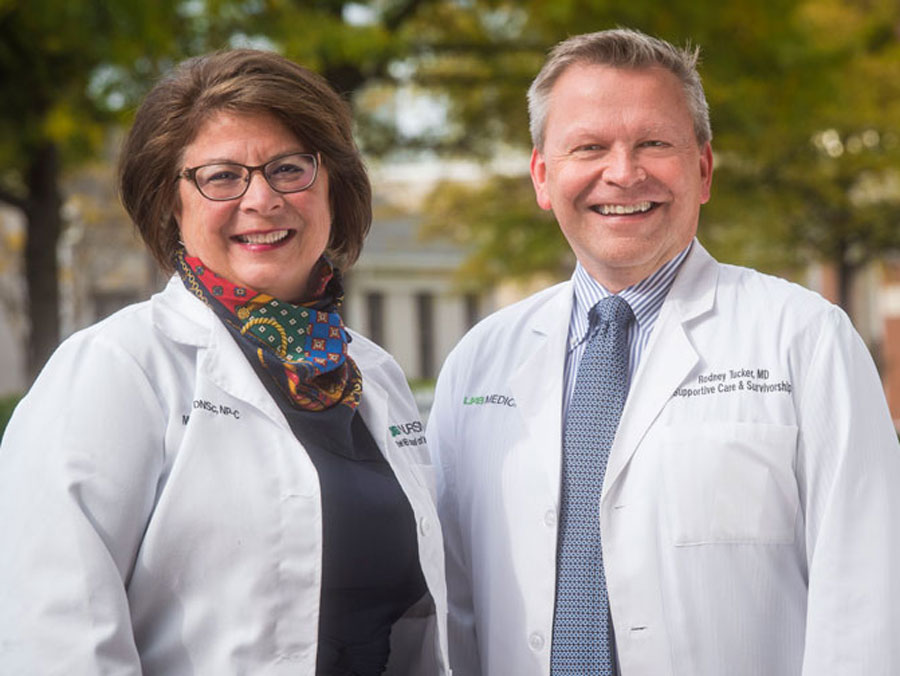
By Erica Techo
The University of Alabama at Birmingham (UAB) Center for Palliative and Supportive Care (CPSC) has received the designation of University-Wide Interdisciplinary Research Center (UWIRC). The UWIRC is co-directed by UAB School of Nursing Professor and Marie L. O’Koren Endowed Chair Marie Bakitas, DNSc, CRNP, NP-C, AOCN, ACHPN, FAAN, FPCN, and UAB School of Medicine Professor Rodney Tucker, MD, MMM, FAAHPM.
This designation aligns the CPSC with many of UAB’s notable research centers, and it is the first UWIRC with a nurse as a co-director.
“Receiving the UWIRC designation at UAB opens the door to more opportunities for research, funding and collaboration,” said Bakitas, who took on the role of Interim Associate Dean for Research and Scholarship in the UAB School of Nursing on August 4. “Being a center not only recognizes you as a center of research excellence, it also provides funding for infrastructure and opens up the network of other center directors, including the O’Neal Comprehensive Cancer Center, the Center for AIDS Research, and others, to form additional research collaborations.”
The CPSC is currently designated as a UWRIC pilot center and will have three years, until Fall 2022, to meet the criteria required to apply to become designated as a full center. Criteria includes implementing internal and external review processes, having a pilot project program, contributing to the University’s intellectual environment, and supporting interdisciplinary faculty involvement and others.
Consistent with the interdisciplinary philosophy of palliative care, it is appropriate the UWIRC co-directed by the Schools of Nursing and Medicine. “Palliative care is a team sport that requires an interdisciplinary approach,” Bakitas said. “There’s an equality amongst the disciplines that make up our team, so it makes sense that the leadership of the center and the research mission of the center reflect this interdisciplinary philosophy.”
Research at CPSC involves improving access to palliative and supportive care, addressing palliative care cultural considerations and disparities, enhancing communication skills and improving caregiver support. This research was well underway before the UWIRC designation, Bakitas said, but additional funding will extend reach into these thematic areas.
The COVID-19 pandemic and ongoing conversations regarding social justice and racial disparities in health have shined a light on the importance of the Center’s emphasis on telehealth and community-based care.
“In the United States, Alabama and Mississippi have some of the fewest palliative care programs, and at UAB, our palliative care research has always had a focus on cultural awareness in order to improve access and cultural acceptability of palliative care in our state,” Bakitas said. “With the current discussions around social justice and the pandemic of injustice, it has really brought attention to this work and made us even more sensitive to and aware of how important this work is.”
As a pilot center, CPSC will also continue to conduct quality improvement and research projects that advance the science of palliative care, highlight and disseminate research, recruit and support junior investigators and recruit senior investigators that will strengthen research.